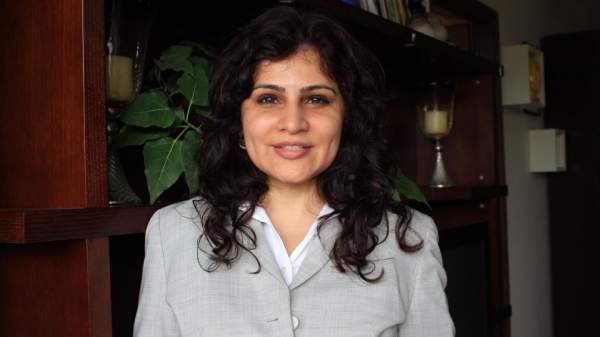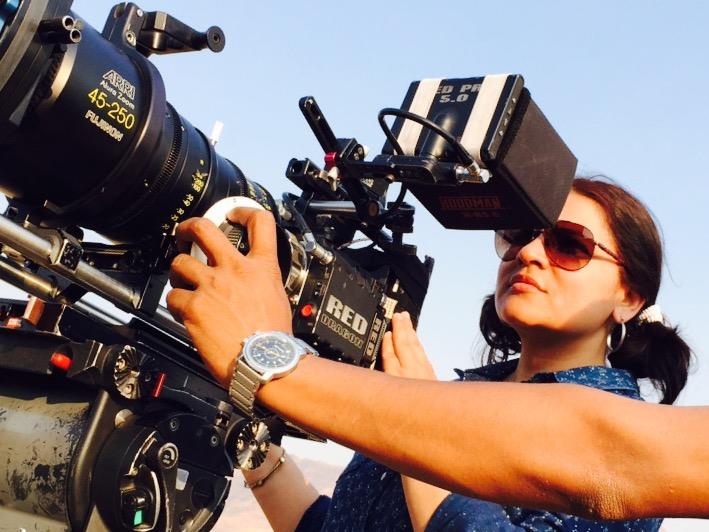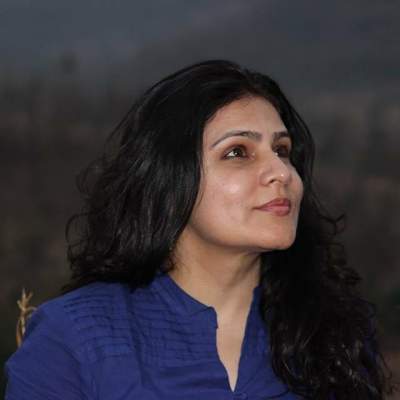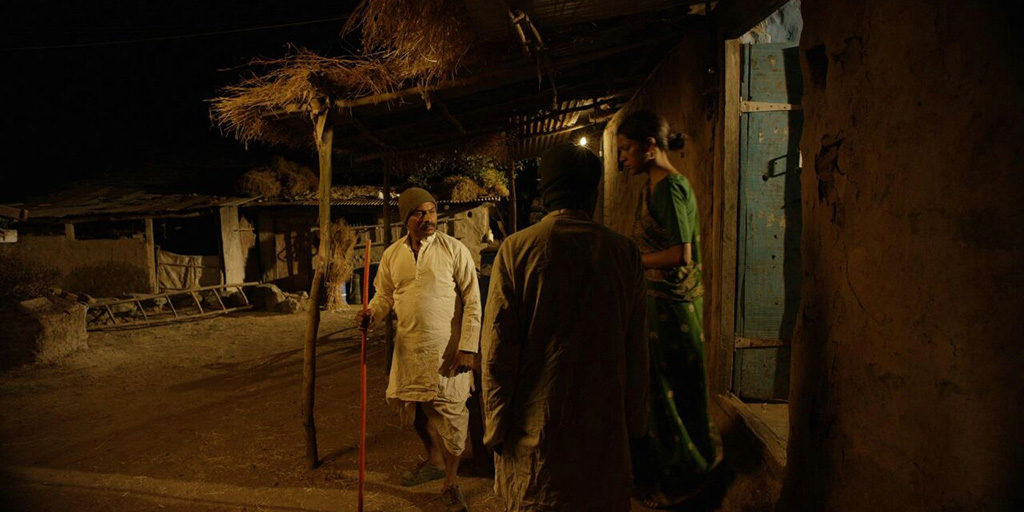I am looking for expression and films are the medium – Pankaja Thakur
Additional commissioner of excise and customs, Pankaja Thakur who is also the former Censor Board CEO wears another hat of a filmmaker. Thakur who has had a very challenging time during her stint at Central Board of Film Certification (2010-2013), has recently come up with a 25-minute film The Guide that had its first screening at DIFF 2016. In a dialogue with Pandolin, the dimpled director speaks about her film which explores whether ‘a man or woman will play a larger role in closing the gender gap’ and how she turned into a filmmaker from an excise officer.

Director Pankaja Thakur
How did your film The Guide happen?
Once a very sad, unfortunate and scary thing happened to my helper’s aunt, who was a midwife. She was supposed to be very lucky for families. The last family she had gone to for the delivery, already had three girl children. They were hoping that they would get a boy if this midwife helps with the delivery. When the baby boy was born, she was given Rs 5000 and a new saree. While she was on her way back, she missed the bus and the next bus was supposed to be at night. Some boys around 18-19 years old knew that she was carrying money. She was 43 years old and was raped and murdered for it. When I heard this from my helper, I was completely shaken and kept thinking to myself what would have been her last thoughts.
What kind of research did you do for this film?
I talked to a lot of midwives because you hear about them only in the villages where they still exist. In fact, they are now been employed by the rural primary health care centres and they go to homes to help women deliver their babies. The whole idea of midwives is very symbolic in the film.
Tell us more about the making of the film.
We shot the film this year during February and March. I was on leave for some reason and decided to shoot the film during that time. Immediately after completion of the shoot, the Editor and I completed the editing. It was a 45-minute film and we kept creating different versions of it. We tried to make it shorter but in the process were losing the narrative. It took us six months to get the final product with the music and everything.

Director Pankaja Thakur
It has a very soothing song by Rekha Bharadwaj in it.
It added to the beauty of the film because I wanted to end the film on a positive note. I got Raj Shekhar to write the lyrics for me. We sat and I told her the kind of message that I wanted to convey. So we showed her the film, she heard the lyrics and she felt that this was a film that needed the voice to be heard – for the empathy part of it, that men are not always that evil. She liked it and she did it.
How did you zero in on casting Sanghmitra Hitaishi for the role of the protagonist?
Sanghamitra is a fine actor. She is much younger than the role she played in the film but she was so passionate about the character. These are actors who don’t care about money. With this attitude towards life, you really want to work with them. Someone had asked me why I didn’t cast a 42-year-old because Sanghmitra’s skin looked younger than the age she has played. But that’s not important to me. I wanted to see the passion. There were actors who wanted to know the duration of the shoot and the money even before they had heard the whole story. And such things puts me off. I wanted to work with someone who is passionate about the story as I am, so that’s why I casted her.
After it’s first public screening at DIFF 2016, where else do you want to take it?
I would like to show it to the ministry of rural development, women and child development. With their help, I wish to take the film to rural parts of India and show it to them. Even if it means to showcase it in a moving van and travel with the film.
You are a former Censor Board CEO. What kind of experience was it?
It was a difficult and very challenging role. Every day was a new day with new problems to handle. But you need to handle it with the maturity that comes with age and experience of having worked in the government for almost twenty years.
And what was your take on the recent Udta Punjab controversy?
I completely disassociated myself from the CBFC and deliberately decided to do so because my opinion wouldn’t have helped anyone. If someone had asked me for suggestions then probably I would have thought about the issue but this is something that I can’t really do anything about. There is no point of even having an opinion about it.

Director Pankaja Thakur
Was it a very tough journey while you were serving at CBFC?
No, nothing like that. It was very challenging but when it ended, in a way, I was kind of relieved because I finally got out of that place and could focus more on my personal life and other things.
You are an excise officer, how did films happen to you?
I did a brief course of 100 hours of film making in Singapore back in 2004. I was on a sabbatical and sitting at home. My friend wanted to do this course and asked me to accompany her. I went along but it wasn’t that I found my calling in films after doing this course. I did really well there and got an award after the end of the course. Finally, I made a 9-minute short film called The Inseparables in 2009 and that was only because I had applied for the post of CEO at CBFC and they wanted an additional qualification. I made the film to get the job so I cannot say that I was a passionate filmmaker and was dying to make films.
But now I think you are one.
Yes definitely now I am. Being an officer, you have certain responsibilities and then my daughter is studying in the school. I had quite enjoyed the experience but there’s a difference in doing something that you enjoy and wanting to do it so badly and passionately that it doesn’t let you sleep. There are filmmakers like that too. I am looking for expression and films are the medium.
What’s next?
I want to do a feature after this. I have a couple of stories so let’s see how things work.



